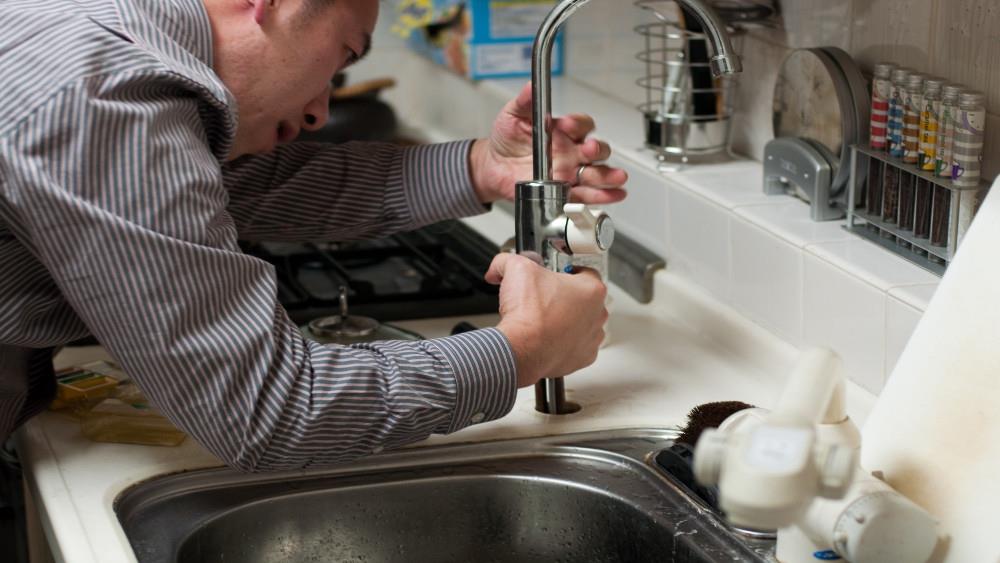

Andrew Sanderson and Elliott Kenton, experts in health and safety law at European law firm Fieldfisher, look at homes guidelines which apply to anyone performing work in other people's homes including employees, self-employed individuals and agency workers
Many jobs including plumbing and repair services include visiting other people's homes, but maintaining social distancing and good hygiene in such intimate settings can be particularly challenging.
As part of a series of guidelines on how to work safely during the Covid-19 pandemic, the UK Government has produced specific 'COVID-secure' guidance for people whose jobs involve visiting other people's homes.
Unlike the other COVID-secure guidelines, which apply to designated workplaces, the homes guidelines apply more widely to anyone performing work in other people's homes including employees, self-employed individuals and agency workers, such as plumbers, repair service providers and delivery drivers.
The homes guidelines are not legally binding at this stage, however employers and self-employed workers are encouraged to follow the recommendations to minimise the risk of enforcement action from the Health and Safety Executive.
COVID-19 risk assessments
In addition to risk assessments already performed by plumbers and repair service providers who are required to visit occupied homes, a specific COVID-19 risk assessment will need to be undertaken and ideally completed before home visits resume.
For businesses that have been operating throughout lockdown, assessments should be conducted without further delay and should addresses the particular risks represented by COVID-19.
Agencies or other kinds of company providing at home consultations and repair services should consult their workers and a health and safety representative selected by a recognised trade union, or a representative chosen by workers, although there is no further guidance on what to do if risk assessments cannot be agreed.
Once the risk assessment has been prepared and agreed, the guidelines stipulate that companies employing workers must share the results with their workforce and are encouraged to publish the results on the company's website. This becomes an expectation for businesses that employ more than 50 workers.
Working practices
Government guidance remains that people should work from home, where they can.
Realistically, however, the majority of businesses offering at home plumbing or repair services will not be able to work from home.
These businesses should identify clinically vulnerable individuals and clinically extremely vulnerable individuals, both in their workforce and their customer base.
CEVIs have been advised not to work outside their own home and employers should abide by this. CVIs are at high risk of severe illness and, if CVIs cannot work from home, they should be offered the option of the safest available roles where social distancing can be accommodated.
Where social distancing cannot be observed, for example where two people are needed to perform a task, careful assessment is needed as to whether this involves an acceptable level of risk, although it is unclear what this means in practice and in reality will be a subjective assessment.
No work should be carried out in a household that is isolating because one or more family members has symptoms, or where an individual has been advised to shield, for example, because they are a CEVI, unless it is to remedy a direct risk to the safety of the household.
When working in a household where someone is a CVI but has not been asked to shield, such as someone aged 70 or over, prior arrangements should be made with the CVI to avoid face-to-face contact with the CVI and the worker should be particularly strict about hygiene.
Where social distancing cannot be followed in full for a particular necessary activity, all mitigating actions possible to reduce the risk of transmission between staff and between staff and clients.
While measures such as protective screens and avoiding face-to-face contact may be impractical for some plumbing and repair jobs, mitigating actions may include planning for the minimum number of people needed to operate safely and effectively, keeping the time spent in the customer's home as short as possible, and for workers to use their own transport to travel to and from jobs.
While carpooling should be avoided, where workers are required to travel together, journeys should be with the same individuals, the number of people travelling per vehicle should be limited and vehicles should be regularly cleaned.
Hygiene
Increasing the frequency of hand washing and surface cleaning, particularly on arrival and departure and maintaining good ventilation throughout the house are also important.
Asking the household to open all internal doors to avoid contact with door handles may be an option and there should also be carefully planned waste disposal procedures in place and workers should be encouraged to wash or sanitise their hands regularly and thoroughly.
Demonstrating compliance
Once a business has undertaken these measures, they can download and display a notice to say that they have complied with government guidance.
This can be displayed at company premises and/or in the windows of company vehicles.
It is not yet known whether the HSE will use these notices as a precursor for investigations/inquiries into health and safety standards, but the focus is likely to be initially on businesses who do not display this notice.
Other people's homes may present unique challenges for businesses trying to adopt appropriate control measures to safeguard the health and safety of their workers and others affected by their business.
The most proactive step that home-based service businesses can take is plan ahead with customers to identify how the work can be performed safely, at a social distance and away from CVIs and CEVIs.